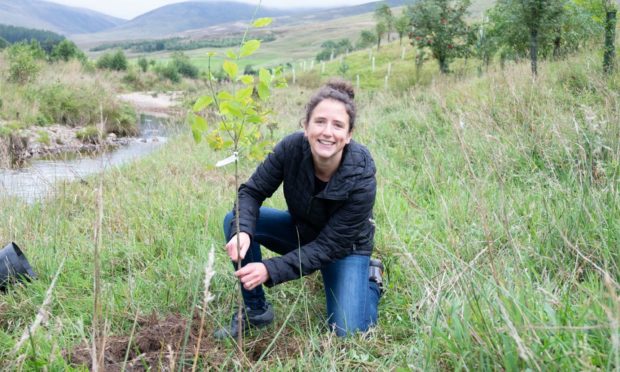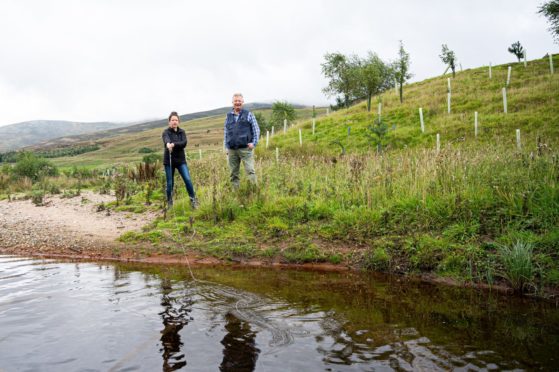Conservationists will increase tree planting alongside Scottish rivers in a bid to create ‘living parasols’ to protect plummeting wild salmon stocks from climate change.
The works comes as part of a £550,000 extra funding for ongoing research into wild salmon populations. Teams are investigating the reasons behind the large decline in salmon numbers.
Many believe the climate change is driving the alarming decline in the iconic species.
Scottish Government rural affairs secretary Mairi Gougeon visited Glen Clova close to her North Angus and Mearns constituency to publicise the new project.
She said: “We know that high river temperatures during the summer are a pressure on wild salmon.
“We are identifying priority stretches of waterways to target tree planting.
“The will provide living parasols to provide shade and encourage good survival and growth of salmon.”
Third worst year on record
Experts believe wild Atlantic salmon populations returning to Scottish rivers have dropped by around 40% in the last four decades.
The total reported rod catch of wild salmon for 2020 was 45,366.
That was the third lowest on record and 92% of the previous 5-year average. Although Covid-19 pandemic is likely to have affected the latter figure.
Workers from Crown Estate Scotland, which has provided 150k of the project’s funding, will team up with local fisheries boards and trusts to collect the data.
Rural Affairs Secretary @MairiGougeon has today announced £550,000 funding to help gauge the impact of climate change on wild salmon.
Funding will help analyse data which is used to help conserve the globally recognised endangered species.
For more➡️https://t.co/k5XLF8El2k pic.twitter.com/uz60yqxQSb
— ScotGov Rural (@ScotGovRural) September 17, 2021
They will sample numbers and study juvenile and adult salmon collected from rivers across the country.
How big a factor is climate change in salmon population decline?
Ms Gougeon added: “It is believed that salmon mortality at sea has increased due to the effect of climate change on ecosystems and shifts in location where food is abundant.
She said the COP26 world climate talks in Glasgow in November continued to focus minds on the issue.
“That is why it is vital that we continue to address the double challenges of climate change and biodiversity loss.”
Anglers have repeatedly warned stocks are at crisis point in recent years.
As well as climate change, they believe dams and weirs on rivers blocking migration journeys and commercial salmon farming may also be hurting the numbers.
Some industry critics believe fish farms attract sea lice which go on to infect and kill wild salmon.
Anglers must release their catches on most Scottish rivers in a bid to protect vulnerable stocks.











